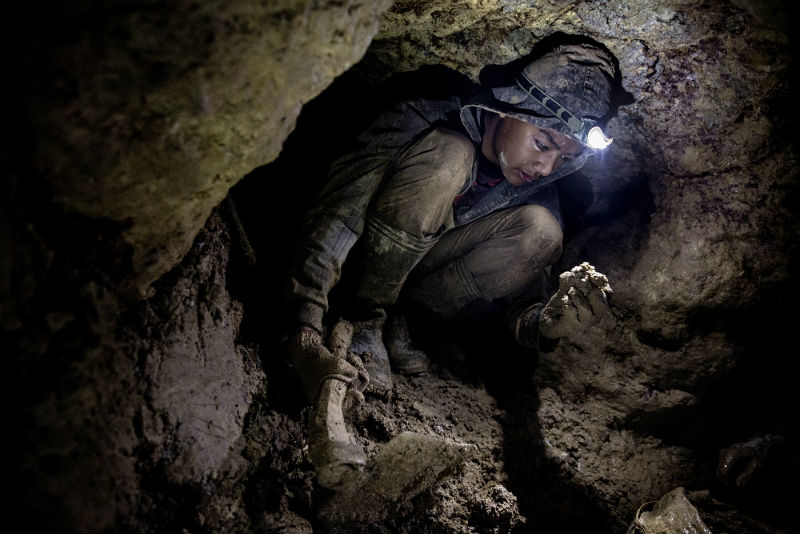By: Crispin Maslog
Send to a friend
The details you provide on this page will not be used to send unsolicited email, and will not be sold to a 3rd party. See privacy policy.
The mining industry in the Philippines is in a life-and-death struggle with environmentalists led by environment and natural resources minister, Gina Lopez. The fight presages what is likely to happen across the Asia-Pacific.
At the moment, the Philippine mining sector is on the back foot with Lopez ordering closure of 23 of the country’s 41 mines and suspending another five for destruction of watershed areas and indiscriminate mining.
Of the mines facing closure, 17 are involved in nickel production. These firms represent about half of the country’s annual nickel output, Lopez said. The Philippines has been the world’s biggest supplier of nickel since 2012, following Indonesia’s ban on mineral exports.
“You kill watersheds, you kill life.”
Gina Lopez, Philippines
Lopez has also ordered the cancellation of 75 mineral production sharing contracts (MPSCs) in watershed zones, many in the exploration stage and none in production yet. The latest action by Lopez suggests that she will not allow them to be developed further, though the mining companies plan to appeal in court.
Lopez’s decision, which followed a month-long audit of the mines, disregarded recommendations by a government team that suspensions and fines were enough. She explained that as environment minister she has the power to go beyond suspensions.
“You kill watersheds, you kill life,” Lopez told a televised news conference called to announce the closures and suspensions. She added that her announcement made on 14 February was her “Valentine’s gift” to the Filipino people.
The writing on the wall
Environmental awareness is a global phenomenon, snowballing in the west and in emerging economies such as China, Indonesia, Mongolia, Myanmar and the Philippines. The green voice is louder and politicians have now introduced policies aimed at protecting the environment.
John Miller, editor of The Miner, trade journal for the mining industry in the Asia-Pacific, has warned that the industry as a whole will be in trouble if it does not read the writing on the wall. [1] Mining companies are facing increased compliance risks nowadays and other countries, including Indonesia, are taking keen interest in the Philippines’ move.
The Philippine case is a microcosm of what is happening elsewhere in Asia Pacific and it comes at a time when the mining industry is at the crossroads. To quote The Miner: “With the short-term outlook for commodities remaining negative there is little likelihood of any relief for the next 12 months, which means more belt tightening, more mine closures and job losses, more financial hardship and more pain.
“In China, the government plans to raise environmental standards in its highly-polluting mining sector, which is generally positive. The mining sector has been a crucial part of China’s rapid economic expansion, but poor regulations and weak enforcement of standards have contaminated much of the country’s soil and left parts of its land and water supplies unfit for human use, not to mention the chronic air pollution,” says Miller. [1]
“According to Thomson Reuters GFMS, the world’s top 10 miners have lost around half their market value in 2015, wiping out an estimated US$280 billion.
“Fitch Ratings’ outlook for the mining sector in 2016 is negative, reflecting its view that Chinese demand will weaken further and that commodities will remain unpopular with investors . . . the slowdown in Chinese demand has created substantial oversupply in some commodities.” [2]
The roads we drive on, the buildings we live and work in, the equipment we need and the products we use in our daily lives are made of or contain minerals. The problem is that in extracting these minerals creates a lot of waste and pollution, and destruction of the environment. This is why the environmentalists go ballistic against the mining industry.
The mining industry claims that the business brings profit and prosperity to national economies. But, this is always at the cost of environment, even the health and well-being of the poor who work and live where the mines are located.
To quote bankwatch.org web editor Sven Haertig-Tokarz: “In Kyrgyzstan, the Kumtor gold mine has already generated … toxic spills that have injured local people … the Centerra Gold has been contaminating local waters and glaciers while hiding evidence of such negative impacts from public oversight.” [3]
Disciplining the industry
Lopez sums up the mining-environmentalist tug-of-war in the Philippines by doing a cost-benefit analysis as part of her audit of the Philippine mining industry. She found the cost outweighing benefits 3:1.
The destruction of the environment is far greater than the taxes paid to the national government by the mining companies. In presenting her audit reports to the media at the Valentine’s Day press conference, Lopez showed watersheds barren and mangled by open-pit mining, and asked repeatedly, “Is it worth it?”
To answer Lopez’ question, we say yes and no. We propose a compromise — reduce the number of mines drastically and make sure that they follow mining and environmental rules to the letter. It starts with industry discipline and ends with political will to discipline the industry.
Crispin C. Maslog, a former journalist with Agence France-Presse, is an environmental activist and former science professor at Silliman University and University of the Philippines Los Banos, PHILIPPINES. He is a founding member and currently Chair of the Board, Asian Media Information and Communication Centre (AMIC) based in Manila
This piece was produced by SciDev.Net’s Asia & Pacific desk.
References
1. John Miller, “Environment Never More Important”, The Asian Miner, 12 October 2016. Retrieved 15 February, 2017
2. John Miller, “Signs of Life for the Industry”, The Asian Miner, 04 July 2016. Retrieved 15 February 2017
3. Sven Haertio-Tokarz, website, on the Oyu Tolgoi and Tavan Tolgoi mines in Mongolia and the Kumtor gold mine in Kyrgyzstan. 31 January 2012. Retrieved 15 February 2017














